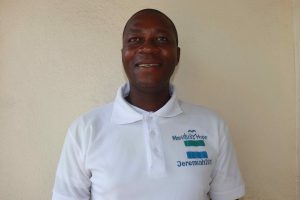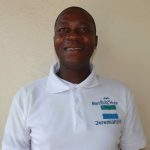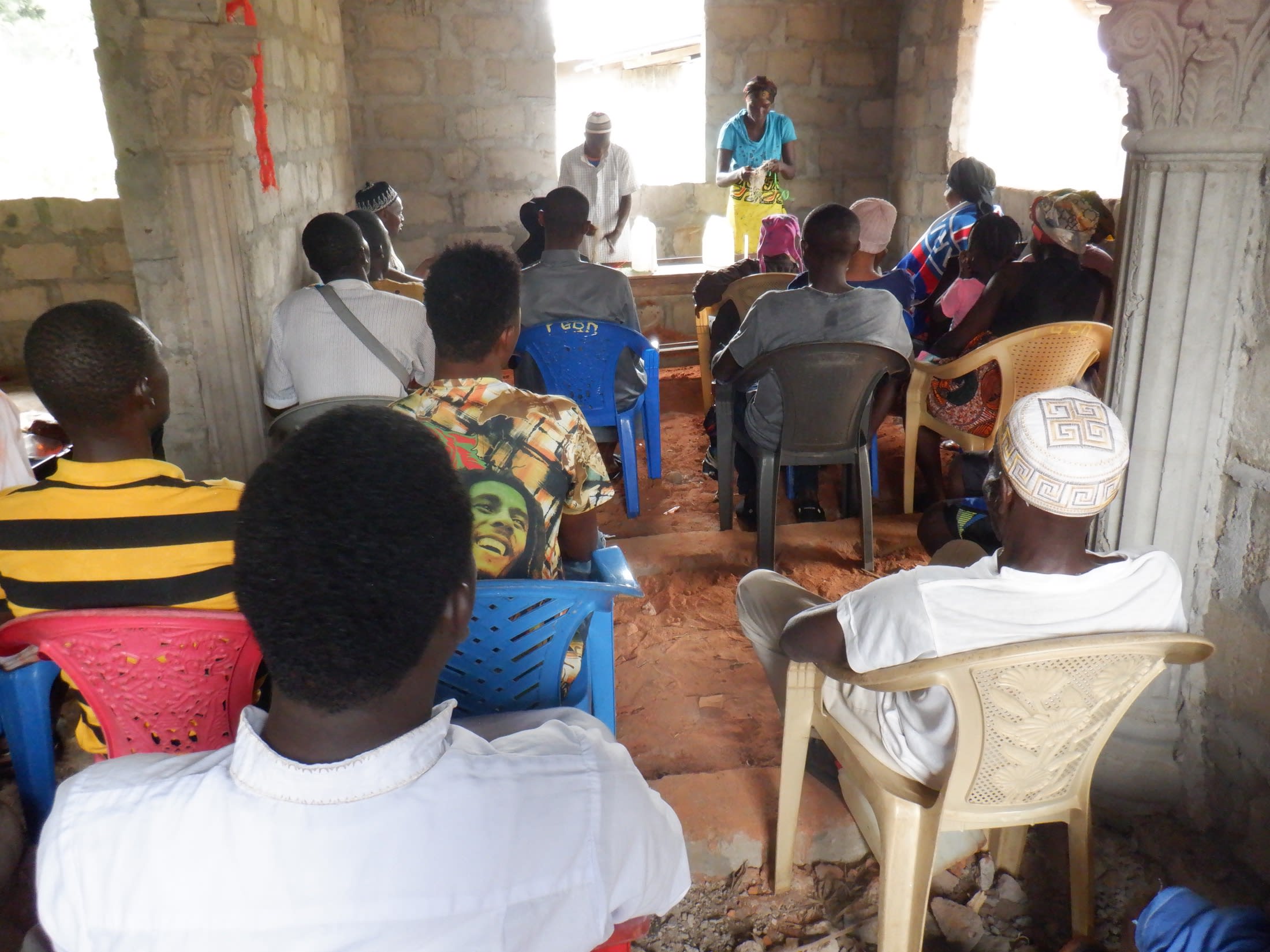There is a protected borehole well in a faraway section of the large town of Mahera. But the LasPalmas Junction well (shown in the photo below) dried up completely in 2021, which leaves everyone in this community of 138 trekking to a neighboring community for all their water needs or buying packet water, which very few people in Mahera can afford. 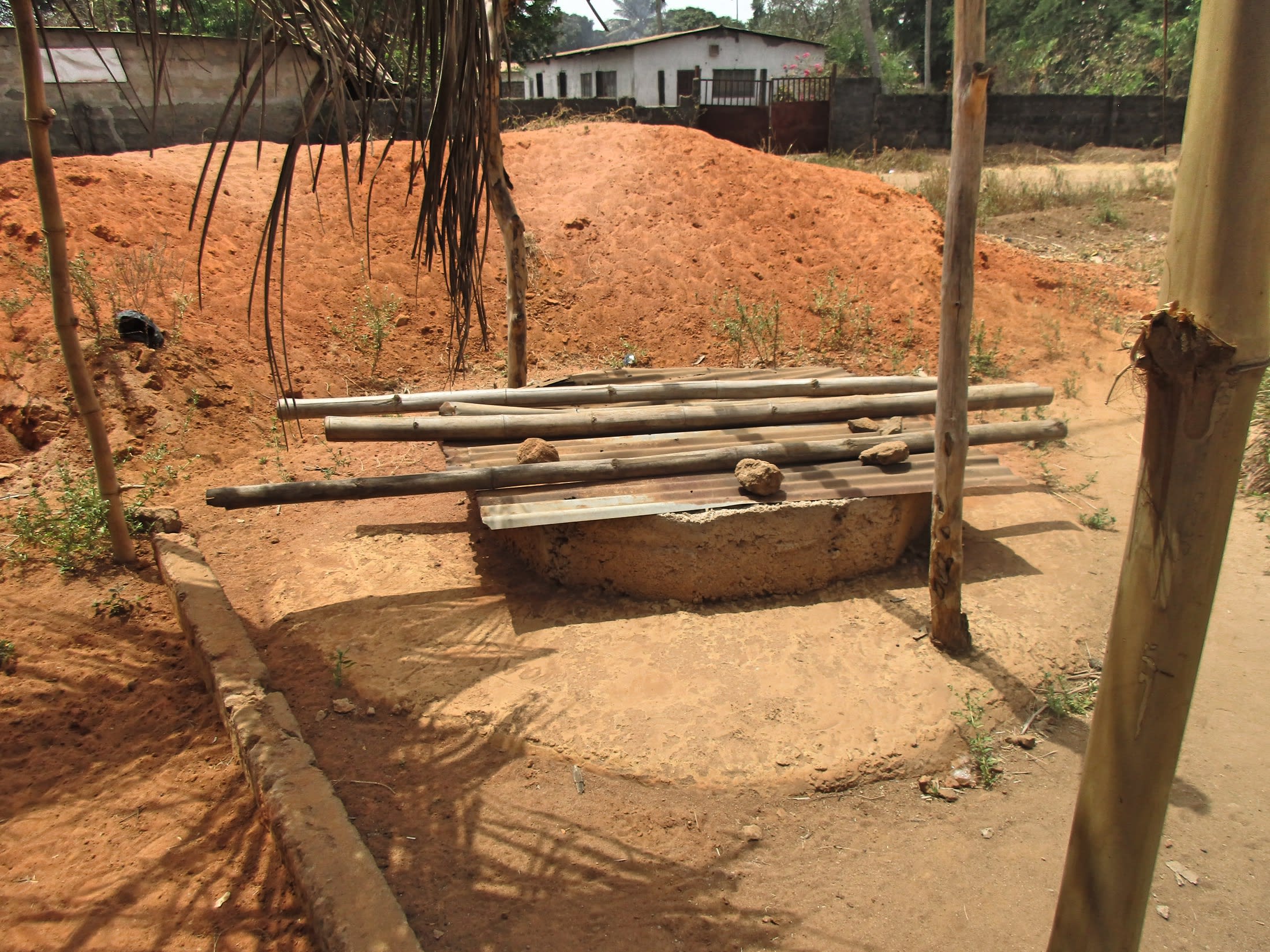 "There is always a massive urgency [for] the limited available water sources in the community," said field officer Moses. "This is causing delays getting water to do daily activities properly or completely. The community people are normally not going out in search of their daily livelihoods on time because of the time they are spending to fetch water at [their] houses."
"There is always a massive urgency [for] the limited available water sources in the community," said field officer Moses. "This is causing delays getting water to do daily activities properly or completely. The community people are normally not going out in search of their daily livelihoods on time because of the time they are spending to fetch water at [their] houses."
Most people in Mahera make the 30-minute journey to an adjoining neighborhood to use their well, but that source is also in high demand, especially because the well is only open for about an hour each morning and three hours at night in order to preserve its water supply.
"Honestly, we face [a] lot of challenges regarding water," said 14-year-old student Mamusu, pictured below.
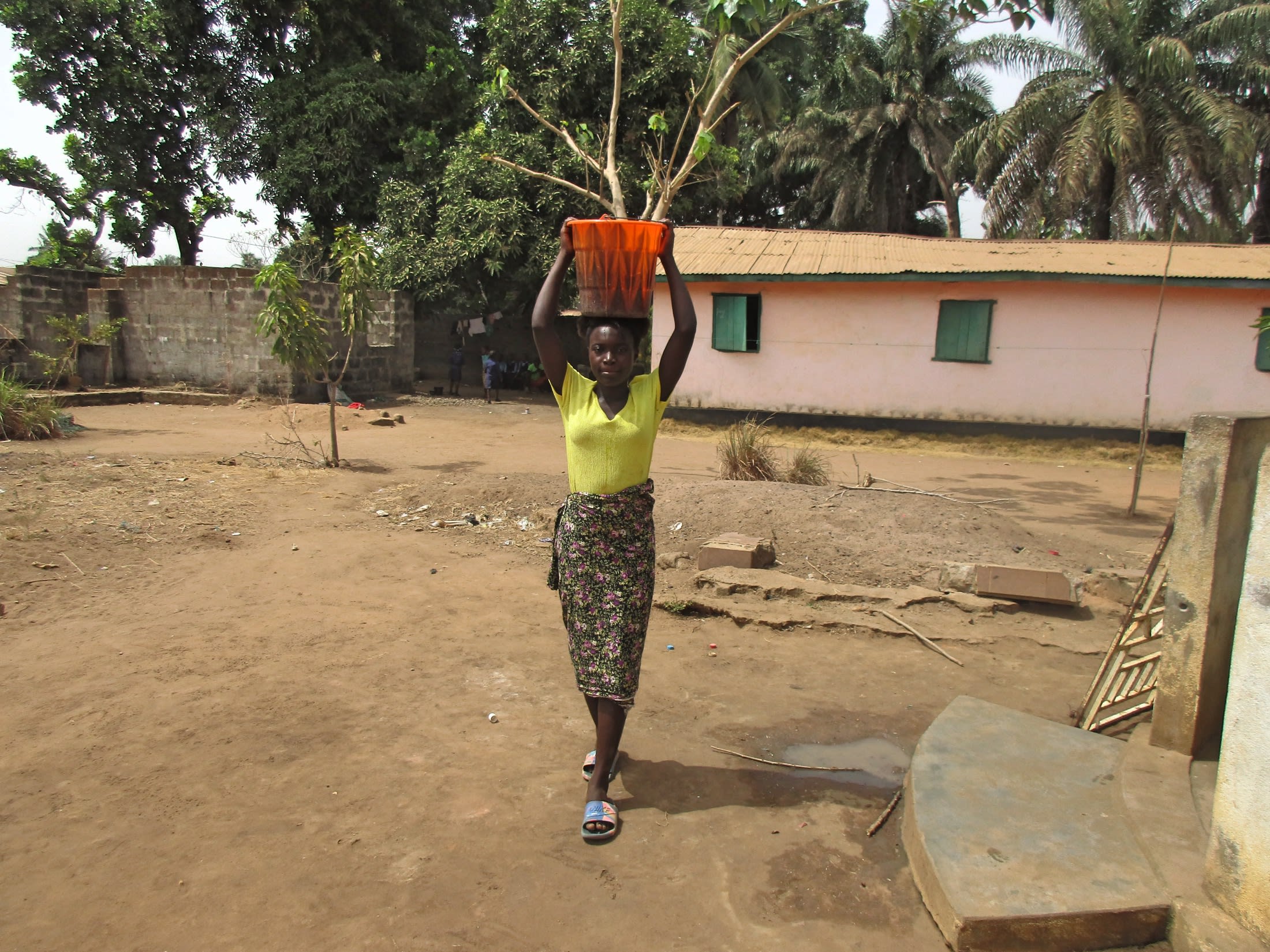
"The reason for [the] long waiting time is the high competition that is involved. The pump normally opens around 7:20 a.m. and closes at 8:30 a.m. The period will not enough to satisfy all of us. Equally, in the afternoon hours, the pump will be accessible [from] around 4:00 p.m. to 7:00 p.m. The competition in fetching water will also increase [then] because a respectable number of we, the students, will be back from school. This is the time we go in search of water to cook, launder our school uniforms, and to perform other domestic tasks."
And while there are other water sources in Mahera, most of them are privately owned, which leaves people like Mariama (pictured below) begging for water from her neighbors.
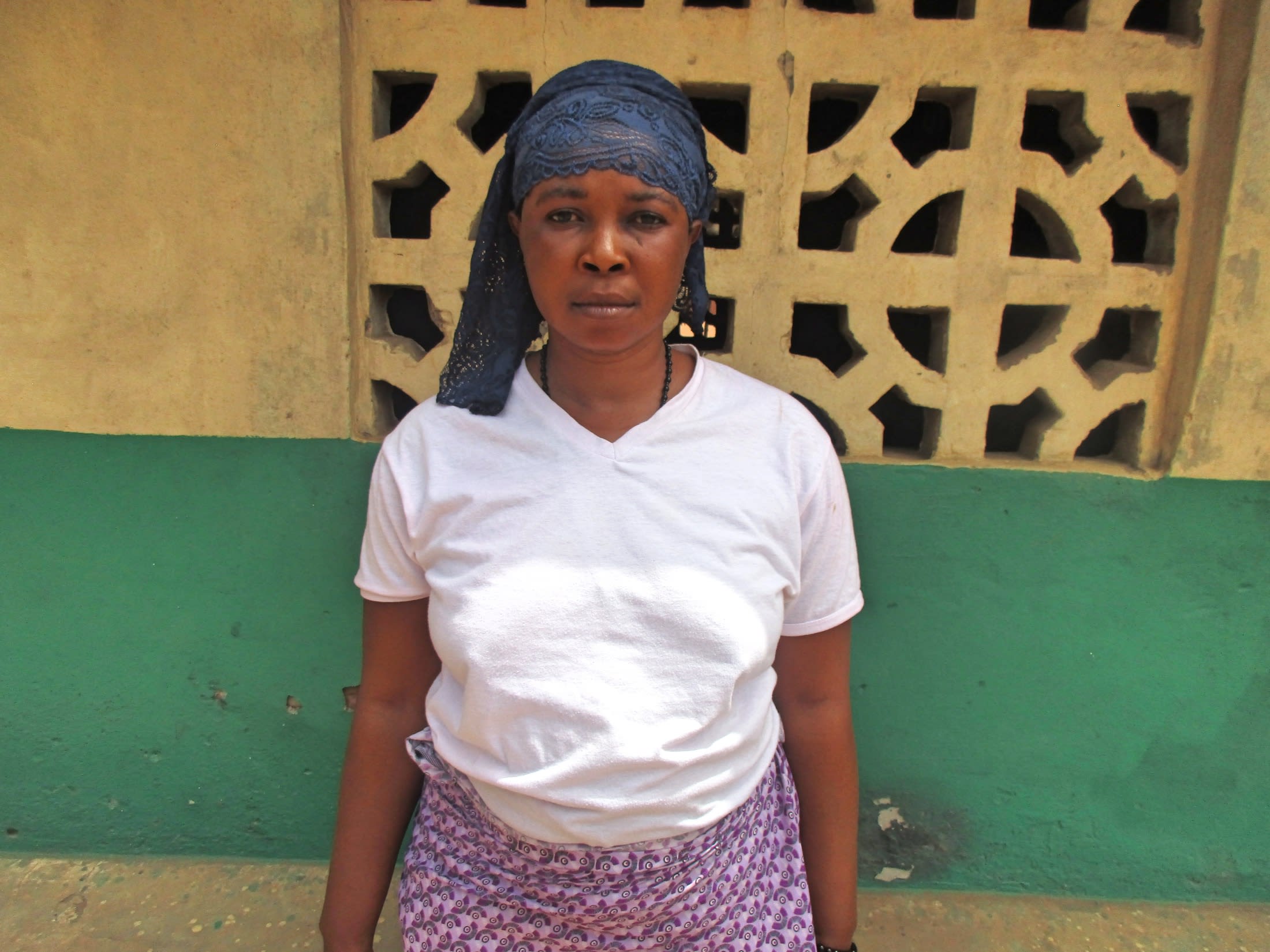
"I normally walk far in this community to access water, especially during the dry season when most of the water wells are dried," said Mariama, who is a 30-year-old petty trader.
"[A] few of the water wells in the community are privately owned," she continued. "I would plead to get access to fetch water. Sometimes the owners would not allow me to get the quantity of water I need for the day. This is the reason [I cannot] complete my daily activities and postpone [them] to the next day. The high number of people going in and around this community [searching] for water is too much. It is like a competition among us going out looking for a source to fetch water. This is sad, especially when there is now only one water well in this community providing water."
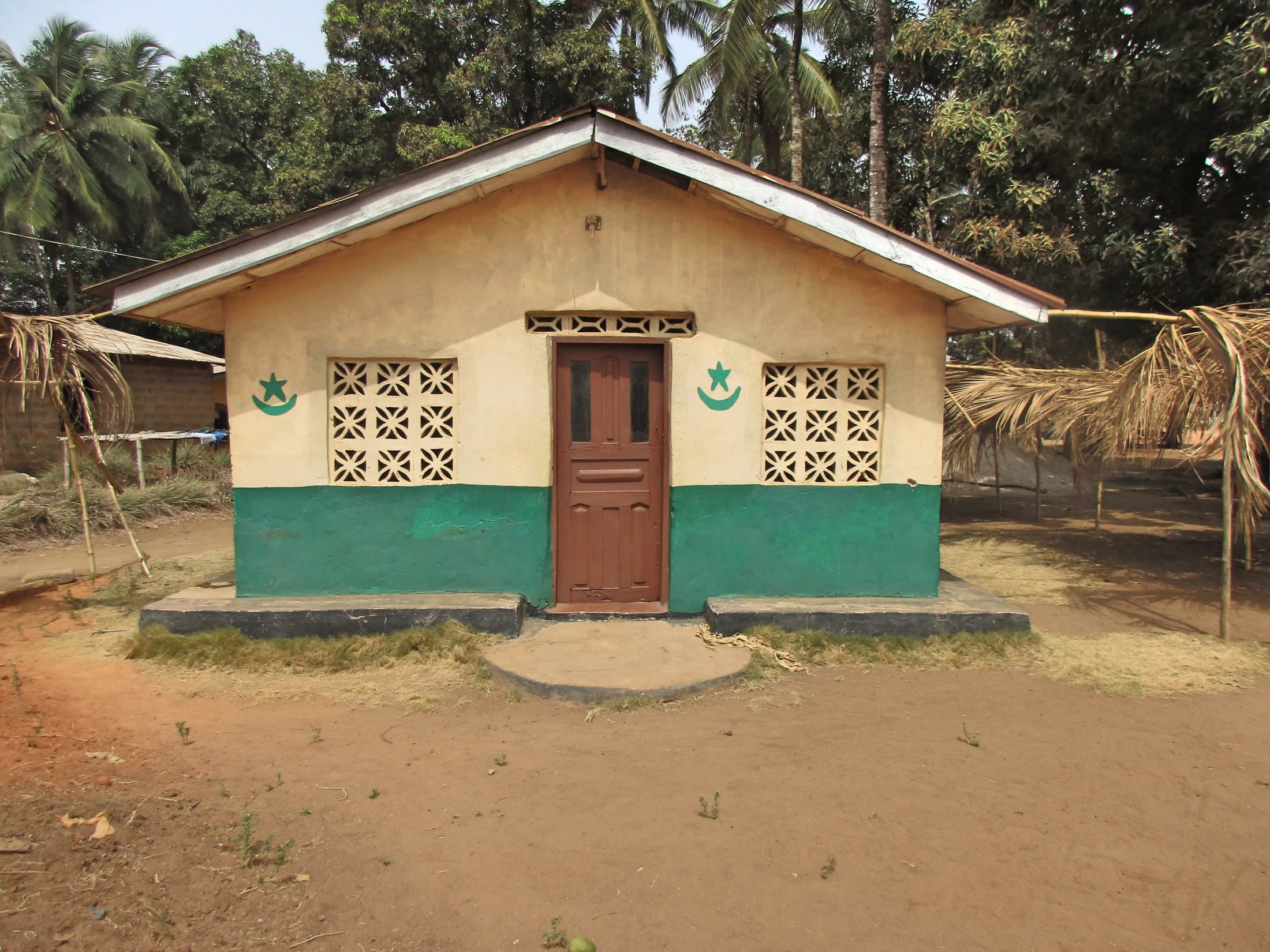
Most of the people in Mahera are Muslim and attend the local mosque. It is customary in Islam to perform ablutions before prayer, but even with community volunteers like Mariama going out in search of water to fill the mosque's containers, there is never enough water to serve those who come to pray.
The LasPalmas Junction section of Mahera needs its old well rehabilitated so the demand on all of the surrounding water sources will decrease. With another source of water, everyone should gain a considerable amount of time they had always spent standing in line. Who knows what they could accomplish then?
Here’s what we’re going to do about it:
Well Rehabilitation
The well marked for this overhaul is dry for a few months every year and needs major work to supply adequate, clean water to the community year round. The pump will be removed, and a hand auger will be lowered inside and powered by a drill team. This hand auger will allow the team to drill several meters deeper to hit a sufficient water column that will ensure the well supplies water throughout all seasons.
As the team drills, casing will be installed, transforming the bottom of this hand-dug well into a borehole. PVC piping will connect this lower system directly to the pump, a construction that we know will also improve the quality of water.
Once this plan is implemented, everyone within the community will have access to safe drinking water in both quality and quantity, even through the dry months.
Hygiene and Sanitation Training
There will be hygiene and sanitation training sessions offered for three days in a row.
After our visit, the hygiene and sanitation trainer decided it would be best to teach community members how to build a tippy tap (a hand-washing station built with a jerrycan, string, and sticks). They will use these tippy taps for handwashing demonstrations, and will also teach about other tools like dish racks and the importance of properly penning in animals.
These trainings will also strengthen the water user committee that manages and maintains this well. They enforce proper behavior and report to us whenever they need our help solving a serious problem, like a pump breakdown.

 Borehole Well and Hand Pump
Borehole Well and Hand Pump









